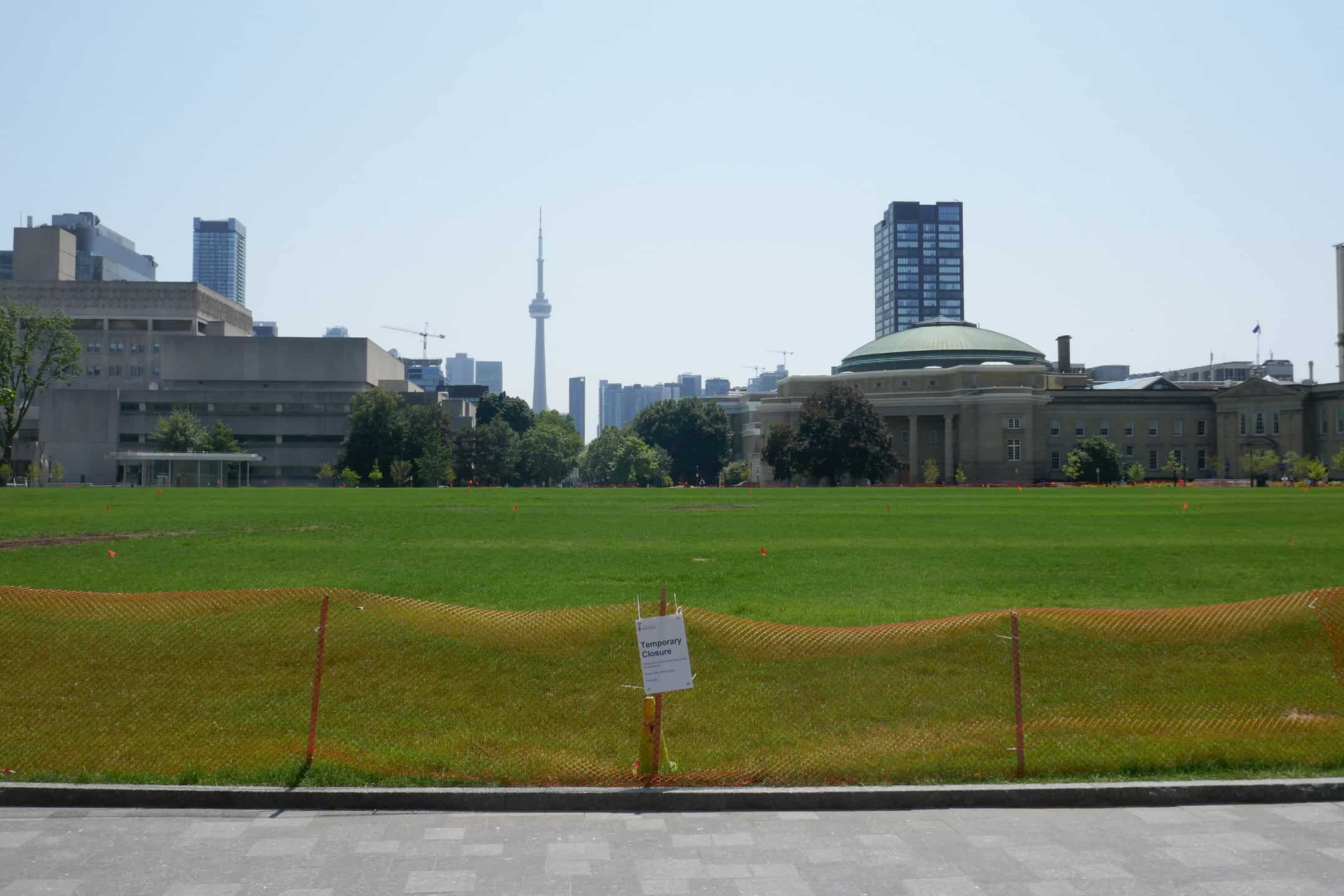After occupying King’s College Circle for 63 days, student protesters agreed to a peaceful end to the encampment after U of T granted them amnesty — meaning that no one would face legal or disciplinary action for participating in the camp or related protests.
For over two months, U of T Occupy for Palestine’s (O4P) encampment — which protesters referred to as the People’s Circle for Palestine — called on U of T to disclose their financial holdings, divest from companies supplying Israel with weapons and services, and cut ties with Israeli academic institutions.
On July 3 at 2:30pm, a two-page document was signed by Sandy Welsh, Vice-Provost, Students, and Kelly Hannah-Moffat, Vice-President People Strategy, Equity & Culture. The document, titled “UofT Counter-Offer,” outlined three major commitments from the university.
In their offer, the university agreed to not pursue legal action relating to the encampment or other protests in support of Palestine on campus; to not pursue legal action or disciplinary measures against participants in the encampment or other pro-Palestinian protests on campus “under university policies”; and to not make complaints to the Toronto Police Services about individual students, faculty, librarians, staff, or other encampment members for their participation in the protests.
The document also noted that the amnesty offer only applies to the protesters’ conduct that the university is aware of up to July 3 at 6:00pm.
In exchange, the protesters agreed that they would comply with the injunction request granted to the university by Justice Markus Koehnen to clear the camp and that “affiliated community organizations” would not confront police when they enforce the court order.
In an email to The Varsity, O4P spokesperson Sara Rasikh — a masters student studying social justice education — wrote that “ensuring the safety of all protesters has always been top of mind for the People[’]s Circle [for Palestine].”
Rasikh mentioned that a “similar amnesty agreement was included in every deal put forward by [O4P] and [was] agreed to in principle by the university even before the injunction was filed.”
“Encampment participants believe it is the bare minimum for the university not to go after its students for a peaceful protest,” wrote Rasikh. “This agreement merely states that on paper, and we expect them actually to abide by it.”



No comments to display.